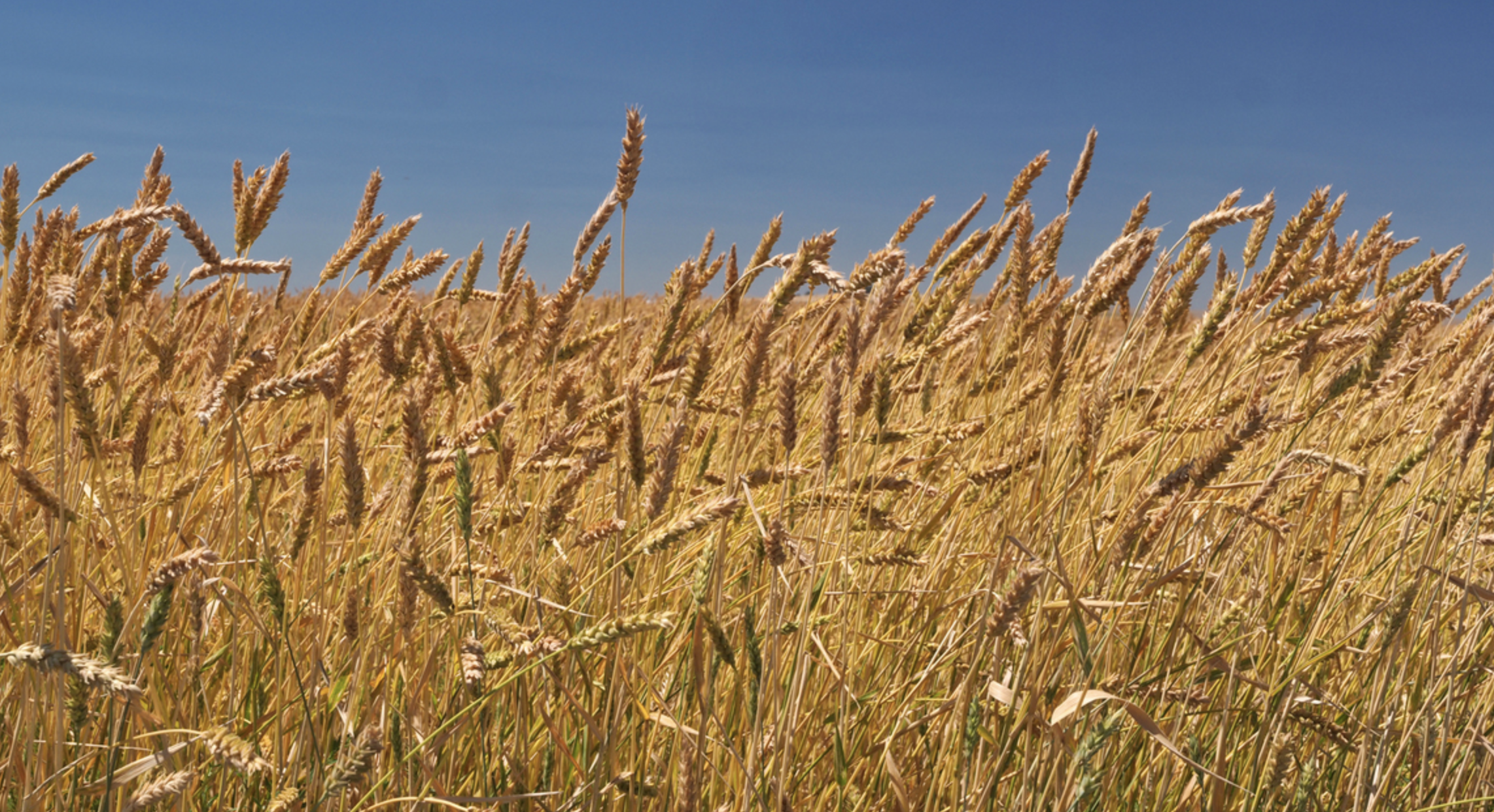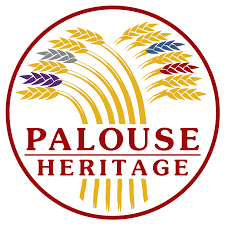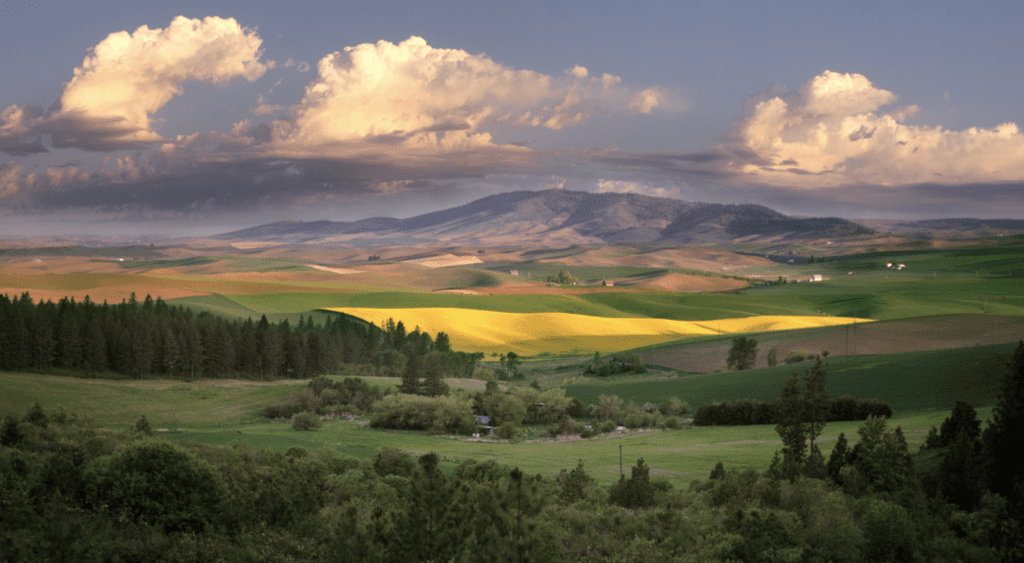At The Sourdough People, we are always searching for the finest quality grains to inspire our community of bakers and elevate the flavors, textures, and nutritional benefits of sourdough. Today, we are excited to share the story of Palouse Heritage, a family-run farm from Washington State’s Palouse Country that is reviving heirloom, landrace, and ancient grains. Palouse Heritage has graciously sent flour samples to Canada for review, and we’re thrilled to begin introducing their grains into the Canadian marketplace in a controlled and thoughtful manner. This blog post will dive deep into Palouse Heritage—its grains, history, geography, and the passionate team behind this remarkable farm.
What is Palouse Heritage
Palouse Heritage is more than just a farm—it’s a living tribute to sustainable agriculture, history, and the preservation of ancient grains. Founded in 2015 by the Scheuerman and Ochs families, the farm is located in the Palouse region of Washington, a place long synonymous with high-quality grain production. The founders’ ancestors, German-Russian immigrants, originally settled the land in the 1880s, bringing with them centuries-old farming techniques.
At the heart of Palouse Heritage is a commitment to growing heirloom grains, those cultivated before modern hybridization and chemical-intensive farming took over. These grains are not only more nutritious but also offer flavors that have been lost in today’s highly standardized agriculture. Palouse Heritage uses regenerative farming techniques, meaning their practices restore soil vitality, eliminate erosion, and reduce carbon emissions. Their commitment to sustainable agriculture is further solidified with certifications like Non-GMO and Salmon-Safe.
Types of Grains Grown by Palouse Heritage
Palouse Heritage grows a diverse selection of heirloom, landrace, and ancient grains, each carefully selected for its unique flavor profile, historical significance, and nutritional benefits. Below is an alphabetical list of the grains they cultivate:
- Amber Eden™ Wheat
A hard red winter wheat with a nutty flavor and robust gluten structure, ideal for artisan bread. Reserved for wholesale bakery accounts due to limited quantities. - Columbia Gold™ Wheat
A soft white wheat with a mild, sweet flavor, historically grown in Europe and currently in trials for future production. - Elwha River Spelt
An ancient grain known for its mild, slightly sweet flavor and excellent digestibility, perfect for bread, pastries, and cereals. - Empire Orange™ Wheat
A hard wheat variety with rich flavors and strong gluten, currently in trials to increase availability. - English Redhead™ Wheat
This heirloom wheat has a striking reddish-brown color and a rich, nutty flavor, making it ideal for rustic breads. - Purple Egyptian™ Barley
An ancient barley variety with a deep, earthy flavor and a visually stunning purple hue. - Scots Bere™ Barley
A heritage barley from Scotland, cultivated for over a millennium, valued for both bread and malt production. - Tibetan Brown™ Oats
An ancient oat variety known for its hearty flavor and nutritional benefits, ideal for oatmeal, porridge, and baked goods. - Turkey Red™ Wheat
A hard red winter wheat brought to North America by Mennonite immigrants, renowned for its strong gluten and rich flavor, perfect for sourdough and artisan breads. - White Sonora™ Wheat
One of the oldest wheat varieties in North America, this soft wheat has a mild flavor and is commonly used for tortillas, flatbreads, and pastries. - Yellow Breton™ Wheat
A vibrant yellow wheat variety with a rich, buttery flavor, currently in trial stages for production.
Each of these grains reflects the diversity and richness that heritage grains offer, providing unique flavors, textures, and superior nutritional benefits compared to modern grains.
The Geography of Palouse Heritage: Washington’s Palouse Country
The Palouse region is an expansive agricultural area that spans parts of eastern Washington, northwestern Idaho, and northeastern Oregon. Known for its rolling hills and rich, fertile soil, the Palouse is ideal for grain cultivation. This region’s fertile loess soil, which is wind-deposited silt that has built up over millennia, provides the perfect environment for growing grains.
Palouse Heritage’s farm sits along the Palouse River, a prominent feature of this scenic landscape. The region is particularly suited to dryland farming, a method that relies on natural rainfall rather than irrigation. This not only preserves water resources but also supports the farm’s regenerative agriculture practices.
In addition to being a renowned grain-producing region, the Palouse is a favorite destination for photography and ecotourism due to its breathtaking beauty. The connection between the land and the people who farm it is deep and meaningful, especially for the Scheuerman and Ochs families, whose ancestors first cultivated this land over a century ago.

The History of Palouse Heritage and Their Farm
The story of Palouse Heritage begins in the 18th century when the Scheuerman and Ochs families’ ancestors emigrated from Hesse, Germany, to the Volga River region of Russia. Invited by Catherine the Great to farm the Russian steppes, they developed sustainable farming practices, including crop rotations and the cultivation of heirloom grains. However, political instability led them to immigrate to the U.S. in the late 19th century, where they eventually settled in the Palouse region of Washington.
In 1883, these families established the historic Palouse Colony, using Old World farming methods like four-field crop rotations and the cultivation of heritage grains such as Turkey Red™ wheat. These methods helped transform the Palouse into one of the most productive grain-growing regions in the country.
In 2015, descendants Richard and Don Scheuerman reestablished the farm as Palouse Heritage to revive these sustainable farming traditions. Today, they continue to cultivate heritage grains using methods that promote soil health and biodiversity, ensuring that the land remains fertile for future generations.
Meet the Palouse Heritage Team
Behind the success of Palouse Heritage is a dedicated team with deep agricultural knowledge and a shared passion for preserving heritage grains. Let’s meet the key members of the Palouse Heritage team:
- Don Scheuerman
Co-founder of Palouse Heritage, Don was raised on a farm in the Palouse region and has extensive experience in agricultural trade and development. He is also a partner in The Grain Shed in Spokane, which focuses on local grains and sustainable farming. - Dr. Richard Scheuerman
Co-founder of Palouse Heritage, Richard is a historian and educator with numerous publications on the history of agriculture in the Pacific Northwest. His expertise in both history and farming is critical to the farm’s mission of preserving heritage grains. - Andrew Wolfe
Farm Director at Palouse Heritage, Andrew has worked in agricultural research throughout the Inland Northwest. He holds degrees in political science and history and is deeply committed to continuing the legacy of his Volga German ancestors. - Karl Scheuerman
Karl grew up helping with grain harvests before pursuing a military career. He now assists Palouse Heritage with business operations and strategy while contributing to research on technology, agriculture, and global food security.
This team’s shared vision of promoting heritage grains through sustainable agriculture is what makes Palouse Heritage a leader in reviving ancient farming practices.
Why Heritage Grains Matter
There are several reasons why heritage grains, such as those grown by Palouse Heritage, are superior to modern grains:
- Superior Flavor: Heritage grains offer complex flavors that have been bred out of modern varieties. From the nutty richness of Turkey Red™ to the mild sweetness of White Sonora™, these grains elevate the taste of breads and baked goods.
- Nutritional Benefits: Heritage grains have deeper roots, which allow them to access essential minerals in the soil that modern grains cannot reach. They are typically higher in protein, fiber, and essential nutrients.
- Environmental Sustainability: Palouse Heritage’s regenerative farming practices focus on restoring soil health, using natural fertilizers and crop rotations to create a sustainable agricultural ecosystem.
- Cultural and Historical Significance: By growing these grains, Palouse Heritage preserves a piece of history and culture. These grains were cultivated by early settlers in America and are deeply tied to the agricultural heritage of the Pacific Northwest.
- Food Security: Heritage grains are open-source, meaning they are not controlled by corporate patents. This allows local farmers to grow these grains without restrictions, ensuring greater food sovereignty and contributing to biodiversity in agriculture.
A Partnership to Celebrate
The Sourdough People is proud to partner with Palouse Heritage to introduce these exceptional heirloom, landrace, and ancient grains to the Canadian marketplace. Through our media channels, industry contacts, and community support, we are helping to bring these extraordinary grains into the hands of bakers and artisans across Canada.
We know you will love working with these grains as much as we do. Their unique flavors, rich history, and sustainable growing practices make them a perfect addition to any baker’s pantry. Stay tuned as we continue this exciting journey, and be sure to explore the wonderful potential of Palouse Heritage grains in your own sourdough creations!

For more information,
visit palouseheritage.com
and join their Facebook Page





















